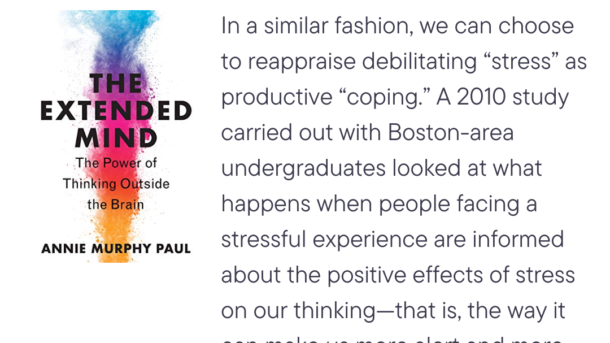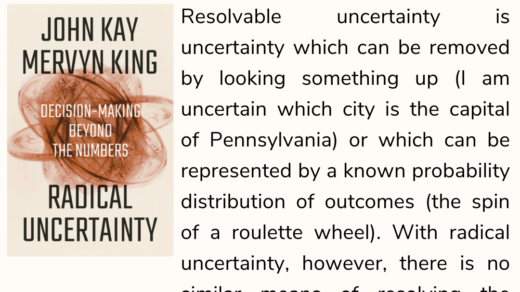In a similar fashion, we can choose to reappraise debilitating “stress” as productive “coping.” A 2010 study carried out with Boston-area undergraduates looked at what happens when people facing a stressful experience are informed about the positive effects of stress on our thinking—that is, the way it can make us more alert and more motivated. Before taking the GRE, the admissions exam for graduate school, one group of students was given the following message to read: “People think that feeling anxious while taking a standardized test will make them do poorly on the test. However, recent research suggests that arousal doesn’t hurt performance on these tests and can even help performance. People who feel anxious during a test might actually do better. This means that you shouldn’t feel concerned if you do feel anxious while taking today’s GRE test. If you find yourself feeling anxious, simply remind yourself that your arousal could be helping you do well.” A second group received no such message before taking the exam. Three months later, when the students’ GRE scores were released, the students who had been encouraged to reappraise their feelings of stress scored an average of 65 points higher. Reappraisal research has begun to elucidate the mechanisms by which this technique exerts its effects. In the GRE study, saliva samples were collected from all the participants and analyzed for the presence of a hormone associated with nervous system arousal. Among the students who engaged in reappraisal, the level of this hormone was elevated—suggesting that their bodies had identified the presence of a challenge and were mounting an effective response, enhancing their alertness and sharpening their attention. Another study explored the neural effects of the reappraisal technique on students who struggle with math anxiety. Their brains were scanned twice as they completed a set of math problems inside an fMRI machine. Before the first round, participants were told to use whatever strategies they usually employed. Before the second round, participants were given instructions on how to engage in reappraisal. When employing the reappraisal approach, the students answered more of the math questions correctly, and the scans showed why: brain areas involved in executing arithmetic were more active under the reappraisal condition. The increased activity in these areas suggests that the act of reappraisal allowed students to redirect the mental resources that previously were consumed by anxiety, applying them to the math problems instead.
Reframing your mindset when feeling nervous can help you tap into your natural capabilities and perform at your best. Our brains have a primitive response to stress, similar to how our ancestors reacted to danger. But by viewing stress as a challenge rather than a threat, we can turn it into a powerful tool that enhances our concentration and alertness. So, next time you’re feeling anxious, reframe your mindset and let your natural response take over.



